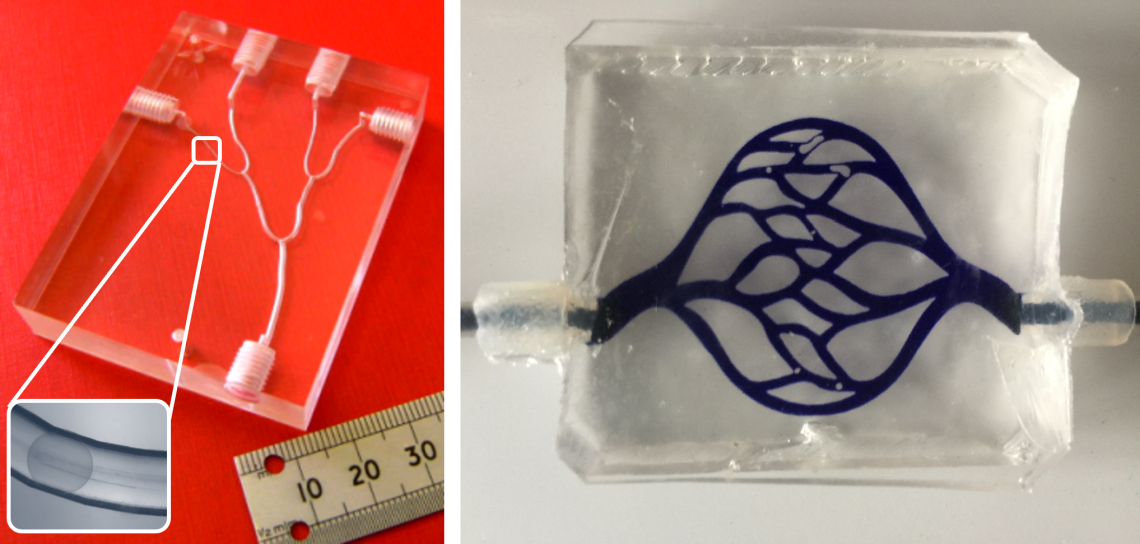
Contact information
Dario is based in the Botnar Research Centre (Botnar 3 building)





Dario Carugo
BSc, MSc, PhD (Biomedical Engineering)
Associate Professor
Dario is an Associate Professor of Biostimulation and Immunological Engineering in the Botnar Research Centre (NDORMS, Medical Sciences Division).
He holds BSc and MSc degrees in Biomedical Engineering from Politecnico di Milano (Italy), specialising in Biological Fluid Dynamics and Life Support Systems. During his MSc research, he developed a physical simulator of mass transfer in patients undergoing hemodialysis. In 2012, he obtained a PhD in Bioengineering Sciences at the University of Southampton, developing biomimetic microfluidic models for the evaluation of intravascular therapeutics (including embolic microparticles and sclerosing foams). He subsequently worked as a postdoctoral researcher at the University of Southampton (2012-2014, funded by an FP7 European project and a Doctoral Prize award) and University of Oxford (2014-2016, Institute of Biomedical Engineering). In this period, he engineered miniaturised acoustic devices that utilise ultrasound to manipulate biological cells (for diagnostic purposes) or to enhance intracellular delivery of therapeutic molecules. He also designed novel mechanistic systems to understand the effects of therapeutic physical stimuli on biological barriers and optimise the stimulation conditions to improve treatment outcomes.
In 2016, he was awarded a tenure-track New Frontiers Fellowship by the University of Southampton, where he subsequently became Lecturer in the Bioengineering Research Group (Department of Mechanical Engineering). In 2020, he joined the School of Pharmacy at University College London (UCL) as a Lecturer in Pharmaceutical Nanotechnology and Nanofabrication, where he then became Associate Professor in the Department of Pharmaceutics.
Dario's research focuses on the design of mechanistic models (including micro-fluidic and 3D/bio-printed systems), quantitative methods, and prototype devices for the improvement of current therapeutic approaches. The treatment methods investigated mainly include interventional and stimuli-mediated approaches that can disrupt or modulate biological systems, to induce anti-microbial, anti-inflammatory, or reparative/restorative effects. His research has potential for application in the treatment of conditions such as chronic wounds, implant-associated infections, vascular and musculoskeletal disorders.
Dario is a Fellow of the Higher Education Academy, and teaches across a range of fundamental and applied subjects. Taught subjects include Cardiovascular and Urinary Systems Physiology, Drug Delivery, Micro- and Nano-Technologies for Drug Development and Screening, Clinical Pharmaceutics, Interventional Medicine and Drug-Device Combinations, and Fluid Mechanics.
He currently teaches Biofluids (Engineering Science) and Micro- & nano-technologies for personalised medicine (MSc Pharmacology), and runs a Bioengineering Design & Laboratory activity for the MSc in Musculoskeletal Sciences programme.

